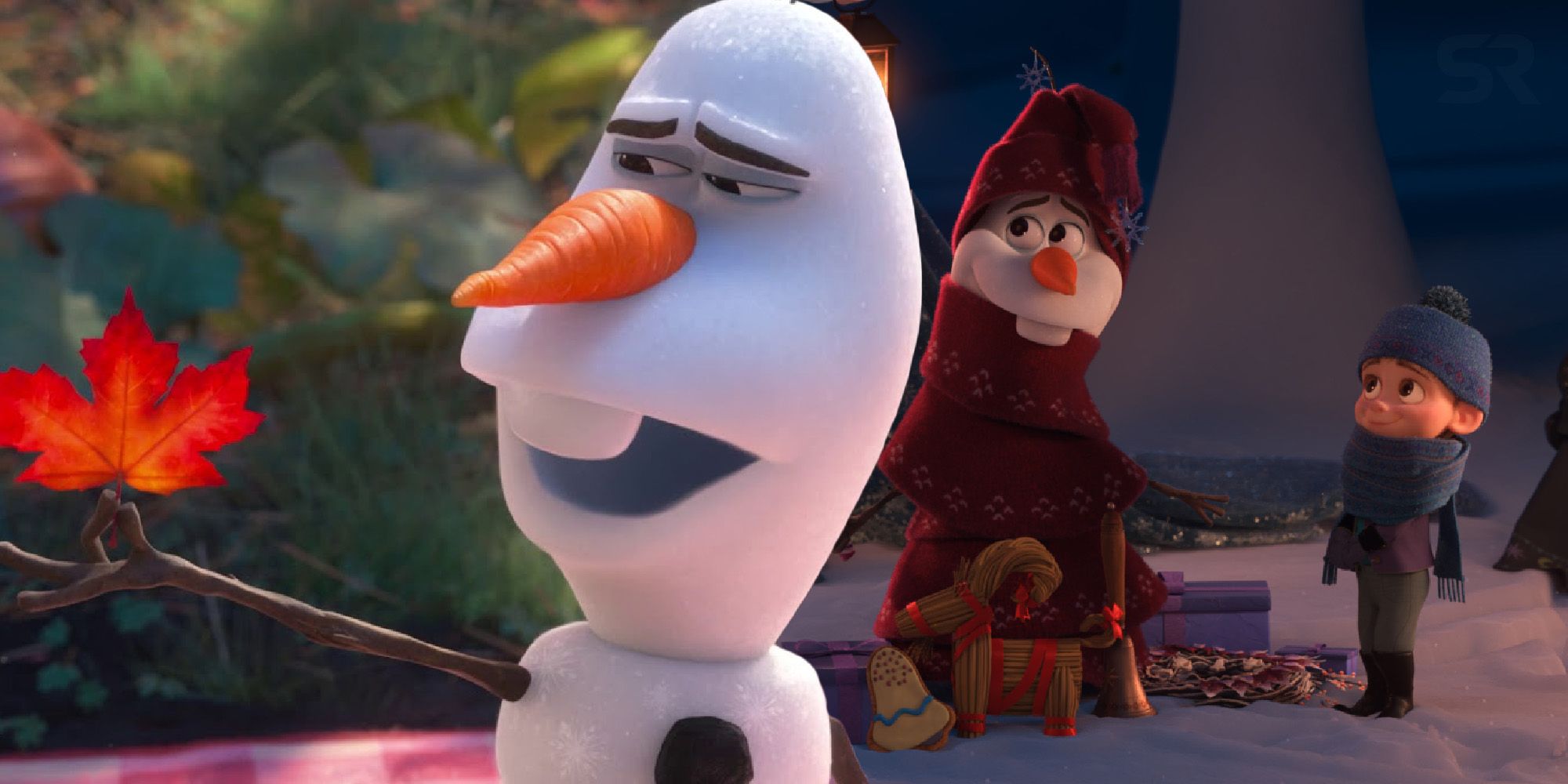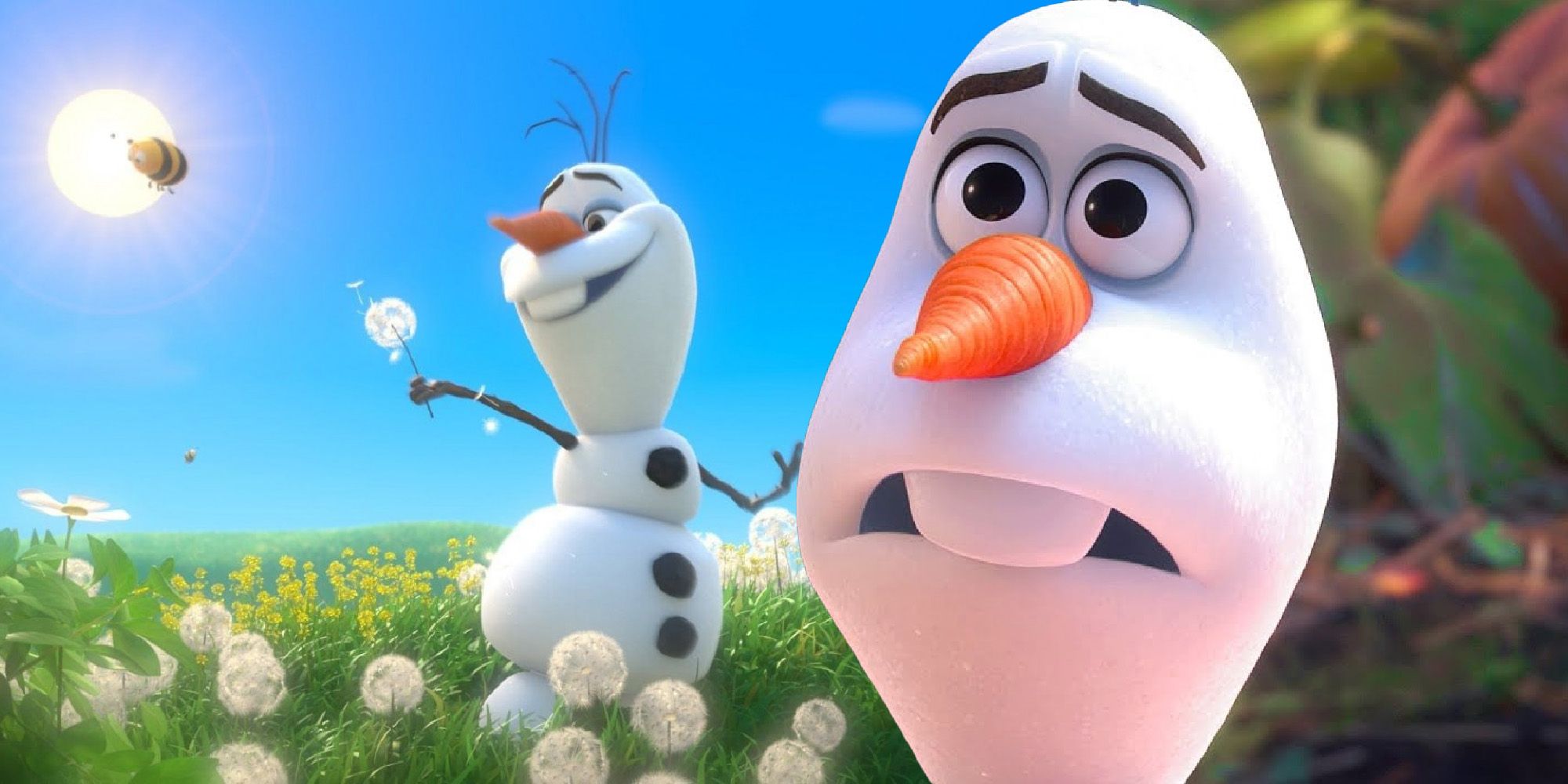Disney's collection of Frozen short films position Olaf as the future star of a spinoff movie franchise. In 2020, Josh Gad's silly snowman remains the most accessible character as the primary source of comedic relief, while Elsa and Anna's storyline takes a magically dark turn in Frozen II. Here's how and why Disney will take a major leap forward with an Olaf standalone film, and potentially many more in the coming years.
Once Upon a Snowman marks the third short film in the Frozen franchise. Released in October 2020, the eight-minute production tells Olaf's origin story and takes place within the narrative of the original movie. After Elsa sings the Disney showstopper "Let It Go," her rogue cloak awakens the snow creation that she and sister Anna conceptualized years prior. With its brief runtime, Once Upon a Snowman explains why Olaf ironically loves the summer so much, and concludes with him recalling the past and embracing his identity as a hug-loving outdoors(now)man. In a clever spin, writer/directors Dan Abraham and Trent Correy subtly reference big moments from the 2017 short Olaf's Frozen Adventure, and also reinforce Olaf as snowman who receive gifts from Mother Nature because of his giving nature.
The release of Frozen 3 would please franchise fans, of course, but writer-director Jennifer Buck has suggested that Frozen 2 wrapped up the storyline. And because Disney reportedly hasn't discussed a third franchise installment, it seems unlikely that it would be greenlit, produced, and released by 2025-ish. That leaves the door open for Olaf, a Frozen character who seems like the ideal Disney hero in the time of COVID-19. In fact, Disney's “At Home With Olaf” shorts were designed to uplift the spirits of locked-down franchise fans, prior to the release of Once Upon a Snowman. According to Abraham (via The Los Angeles Times):
"The studio really wanted to do something to help people struggling to find some happiness and stable ground and familiarity..."
Evidenced by the success of Illumination's Minions movies - a spinoff of the Despicable Me franchise - there's huge potential for an Olaf series. Produced for $74 million, the first Minions film topped $1 billion at the box office, making it more profitable than Despicable Me 3. Assuming that an Olaf movie would be a cultural phenomenon and a big hit, Disney can start writing a spinoff "Bible" (multi-year story planning) based on the continued development of the snowman's tragicomic backstory. Adults can relate to the premise that Olaf's summer dreams are seemingly unfathomable, and that the character doesn't yet know the unfortunate truth about what non-freezing weather would do to his body (which consists of just three large snowballs). Plus, Olaf's story is accessible enough for the targeted demographic to understand the comedic irony of his situation.
Whereas Frozen 2's storyline is darkly magical, Disney's Olaf shorts include tales about perseverance and hope. The filmmakers don't shy away from the snowman's lingering concerns - or how he's perceived by the humans he adores - and the stories crossover into the Frozen franchise storyline, allowing for more narrative depth while inspiring fans to return to the original films. Lastly, Disney can boost their franchise sales by complementing Frozen's wonderful songs with Olaf's one-liners for a presumed wildly successful marketing campaign. For now, the world believes that Olaf the snowman wants to experience the summer, if only briefly. But perhaps his long-term arc with the Frozen franchise is all about his relationship to winter and the great outdoors, and how he can uplift the spirits of his forest friends through kindness and generosity. In that case, "summer" would be a concept, and not a literal place.


